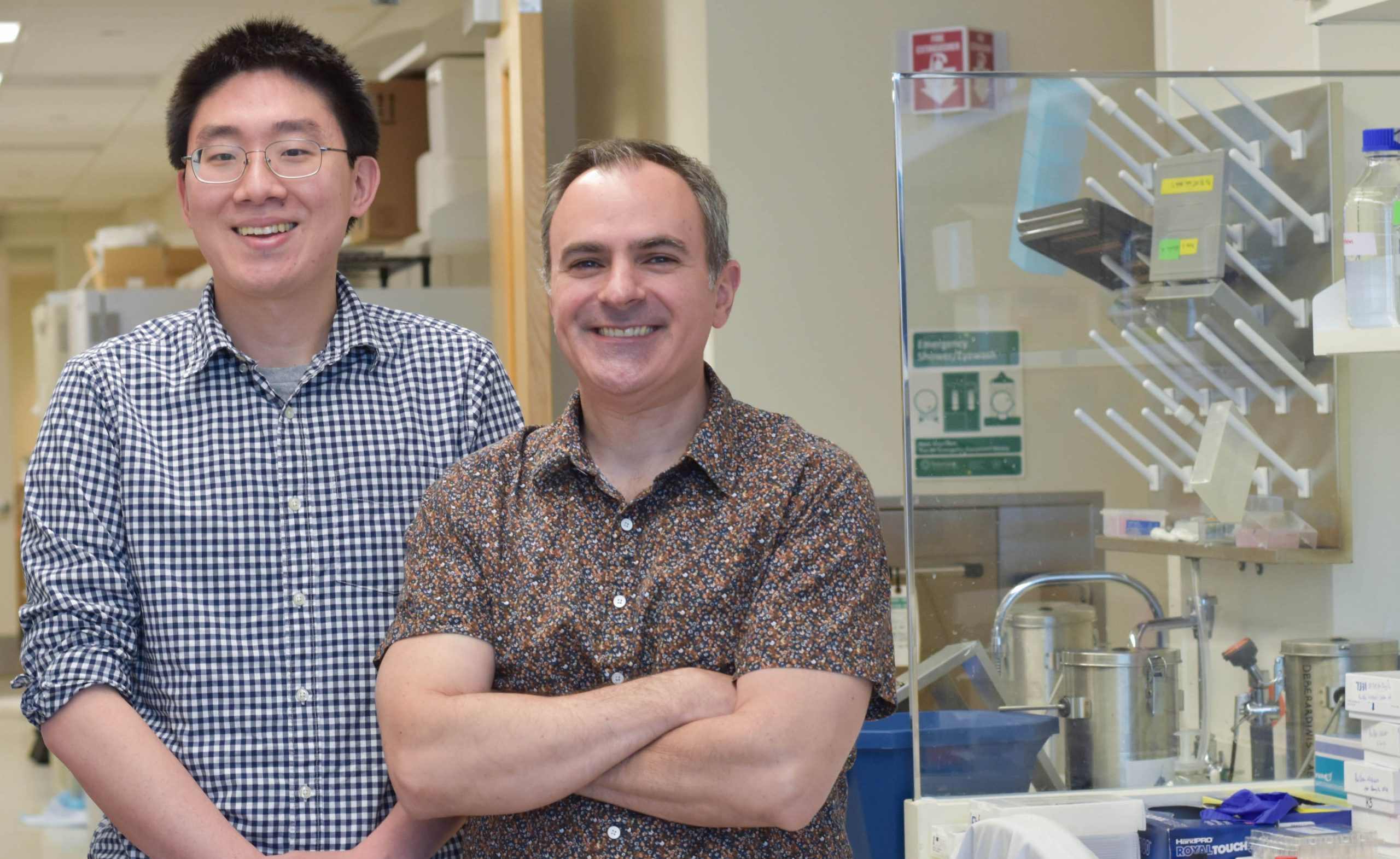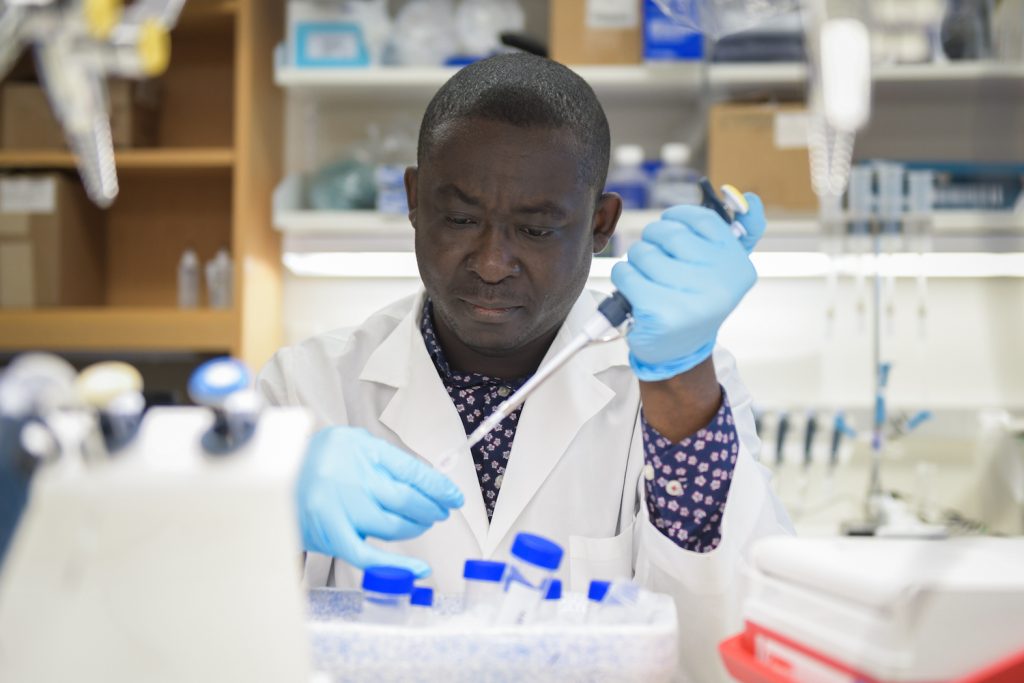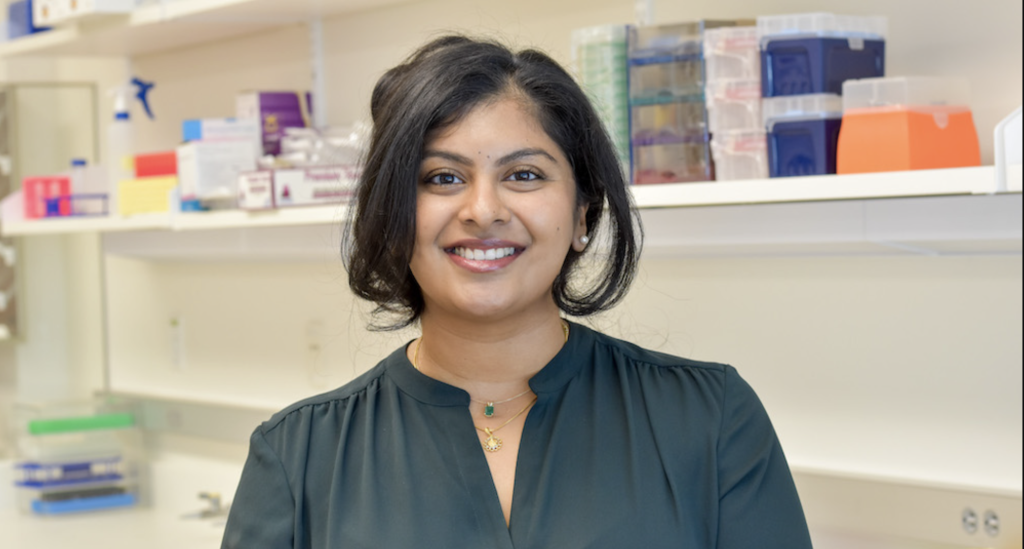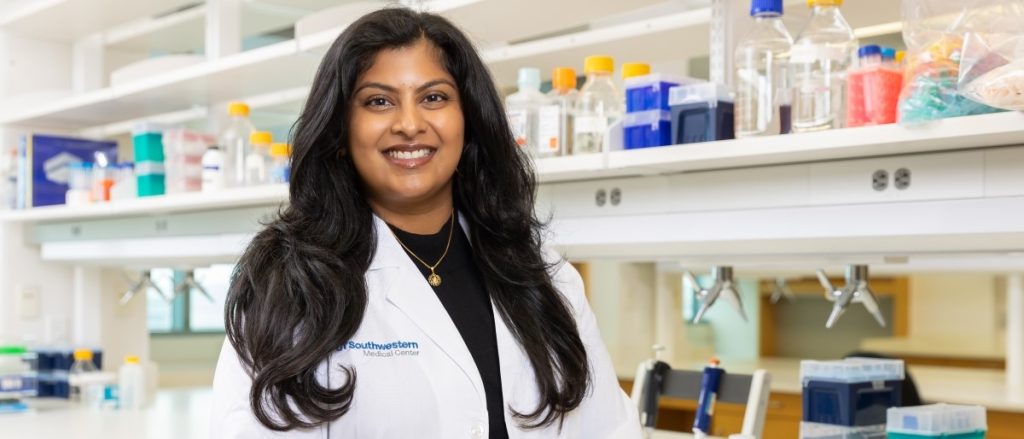Walter Chen, M.D., Ph.D., a postdoctoral fellow in the DeBerardinis lab in Children’s Medical Center Research Institute at UT Southwestern (CRI) and a first-year UT Southwestern Neonatal-Perinatal Medicine Fellow, recently earned the Marshall Klaus Neonatal-Perinatal Research Award – one of the highest honors for neonatology fellows. The award is funded by the American Academy of Pediatrics (AAP) and given to outstanding fellows to fund the initiation or completion of their research projects. Dr. Chen’s proposal was one of nine selected from a highly competitive group of applicants.

Walter Chen, M.D., Ph.D. (left) and Ralph DeBerardinis, M.D., Ph.D. (right)
Under the mentorship of Ralph DeBerardinis, M.D., Ph.D., a Professor at CRI, Dr. Chen will study uncharacterized human proteins in metabolic organelles – the specialized entities in our cells that carry out distinct functions essential for life. Dysfunction of these organelles is often the result of genetic mutations and can lead to severe metabolic disorders in newborns. Finding treatment for these patients is challenging without first pinpointing the exact gene responsible for the disease and understanding the function of the corresponding protein.
Dr. Chen has already identified several uncharacterized proteins from metabolic organelles and is investigating their functions in cultured cells, mice, and patients. Dr. Chen’s previous work pioneered techniques to examine the metabolic contents of these organelles, leading to an Emerging Generation Award from the American Society for Clinical Investigation earlier this year.
“I am excited the AAP recognizes the relevance of this work to neonatal health,” said Dr. Chen. “From a fundamental basic science perspective, it’s always been important to characterize the genes and proteins that make us tick. But as a neonatologist looking at this project through a disease-oriented perspective, given that organellar dysfunction can cause devastating pathology within the first few days of life, I strongly believe that studying uncharacterized organellar proteins will improve how we diagnose and treat metabolic diseases in newborns.”
The task of identifying and characterizing organelle proteins is complex, something Dr. Chen recognizes wouldn’t be possible in many other labs.
“Ralph and the CRI have spent an incredible amount of time and resources to make research like this possible. They have expertise in everything from metabolomics and genomics up to cell culture and mouse models. The Genetic and Metabolic Disease program connects the bench to the bedside, allowing us to work directly with patients as well. In terms of physician-scientist mentorship, I consider myself so fortunate to be working with Ralph as it is truly rare to find someone who practices pediatrics and also runs a lab that does science at his level.”
“Walter’s project will identify new mechanisms of disease in babies,” said Dr. DeBerardinis. “Treating genetically-defined metabolic diseases requires not only pinpointing the mutation but understanding how the defective protein interferes with metabolic control. Walter’s work will bridge the gap between mutation and disease.”
Dr. Chen will be honored along with other awardees at the annual AAP conference in October of this year.



